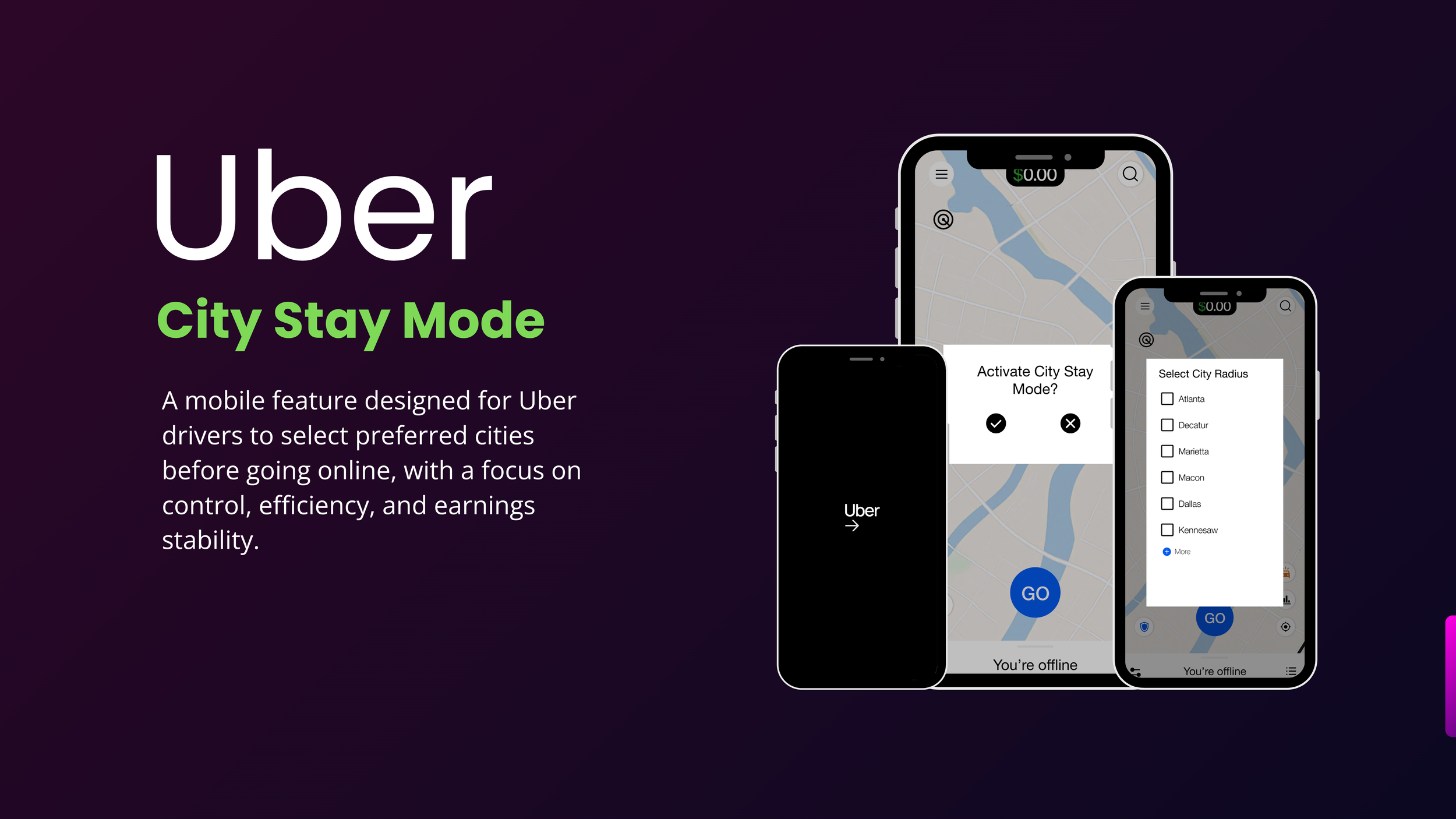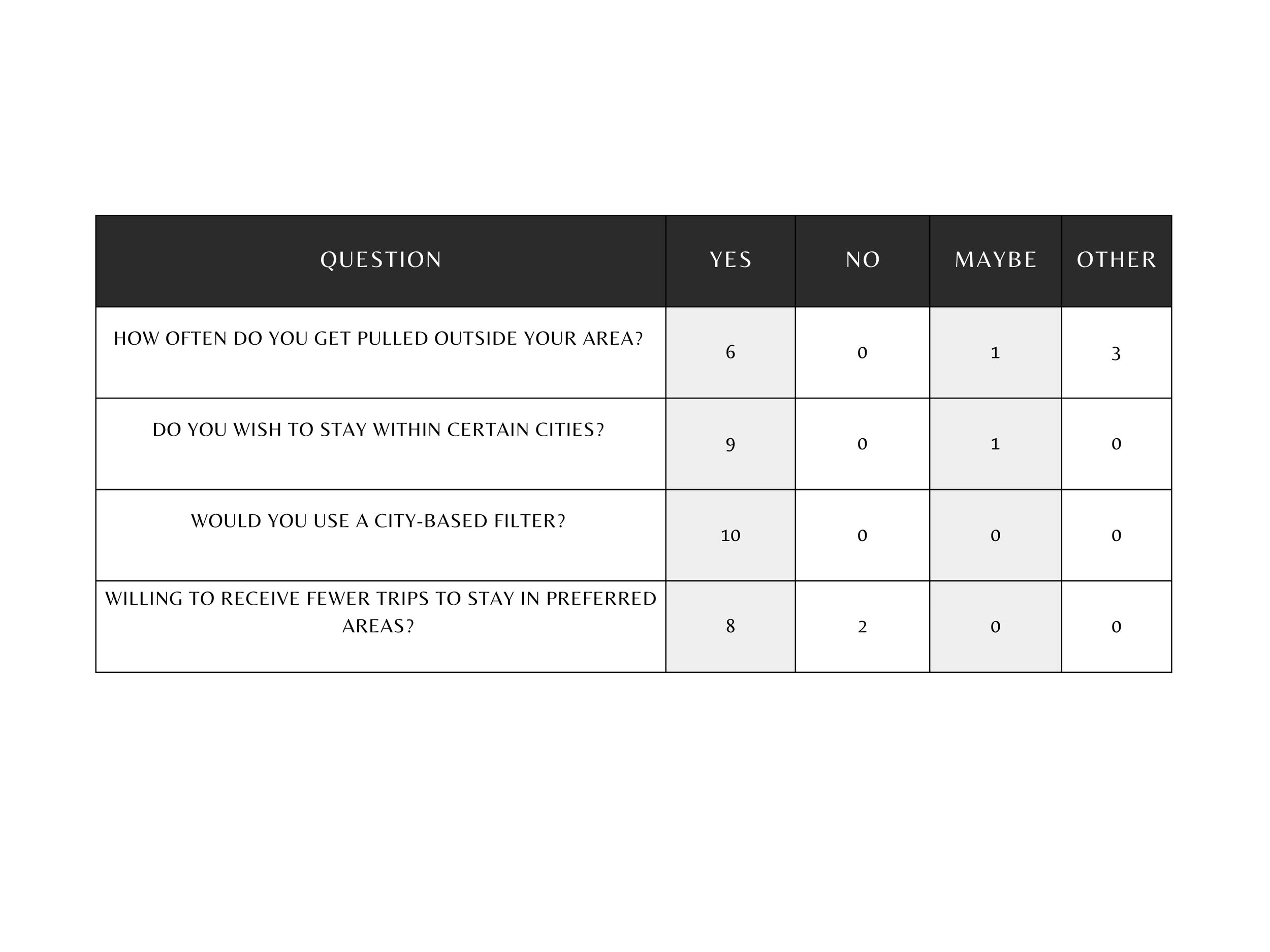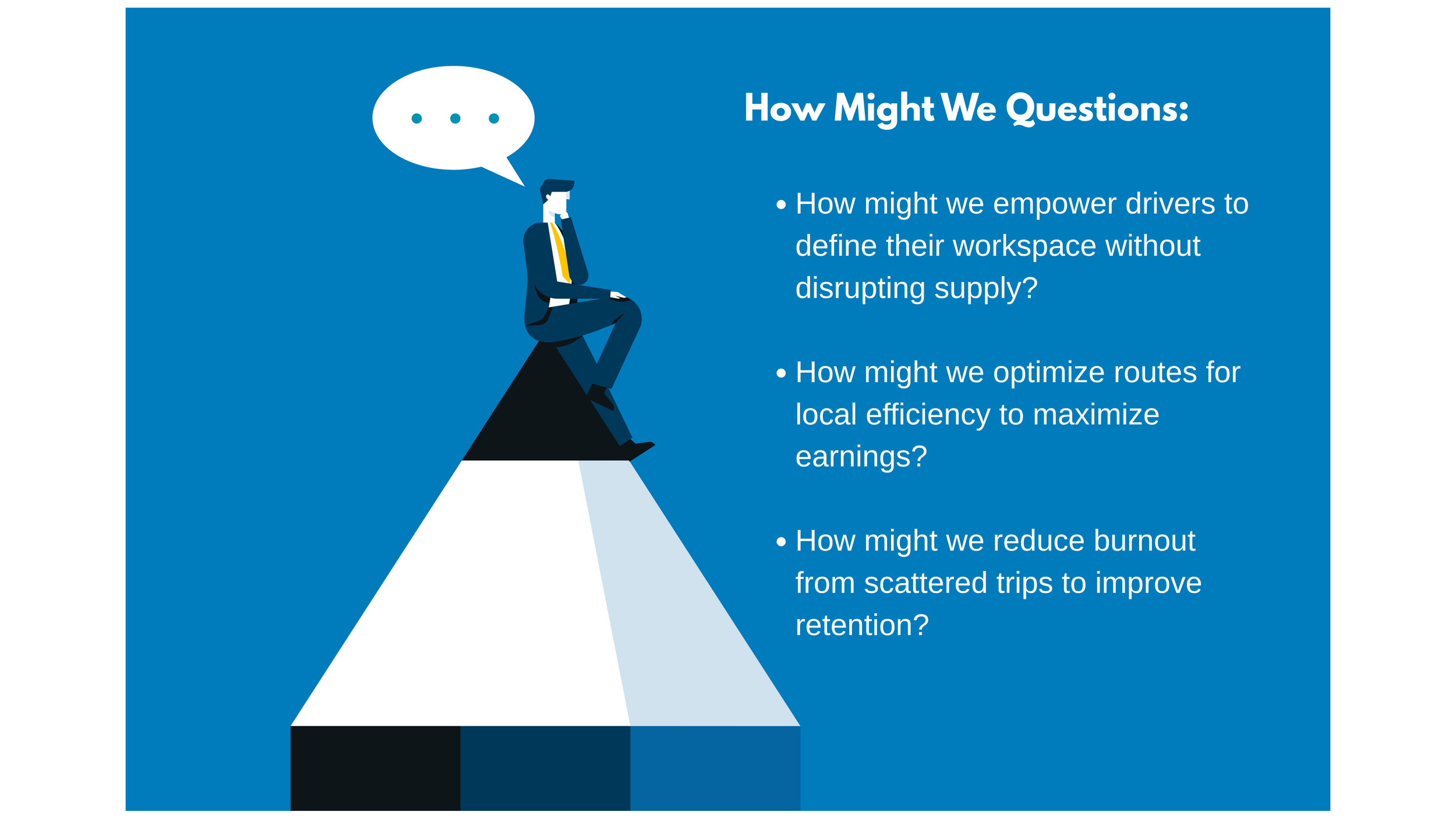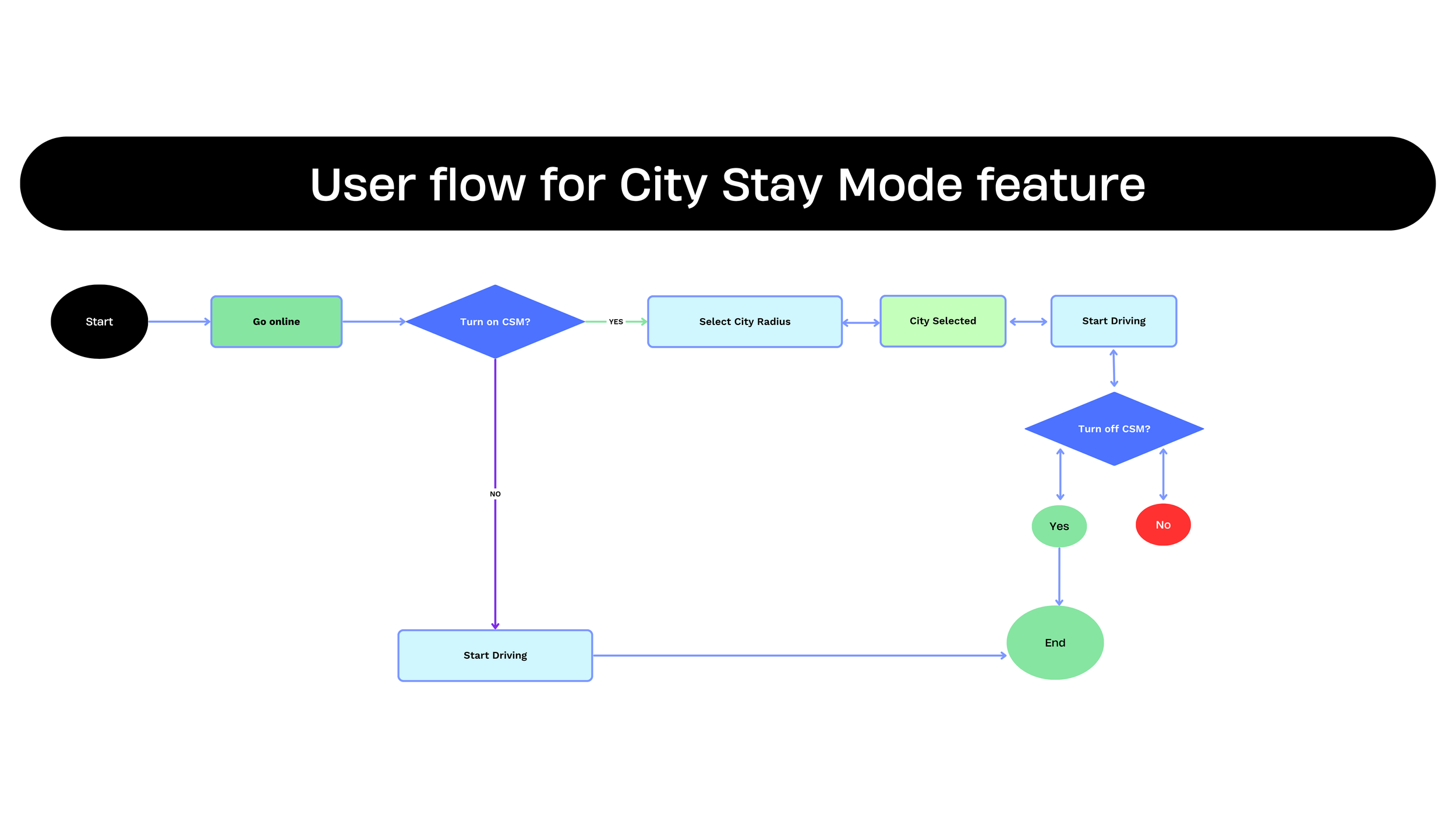Date: April 2025
Role: UX/UI Designer/ Researcher
Tools: Figma, Google forms, Maze
Durations: 10 weeks
Impact Snapshot
22%
Projected increase in driver session length
10%
Earnings boost per hour from $17 to $19.55 on average
45%
Increase in adoption over 6 months.
The Problem
Uber drivers often face fragmented workflows: Algorithm-driven trip assignments can send them across sprawling metros (e.g., from suburbs to downtown and back), leading to wasted time on deadhead miles, fuel costs averaging $38/week, and burnout from unpredictable routes. With U.S. ride-hailing retention at just 32% after six months due to inefficiencies such as route frustrations and a low perceived level of control, drivers feel "pulled in all directions," eroding earnings and job satisfaction.
My goal: Design City Stay Mode, which gives drivers agency over their workspace, fostering focused and profitable sessions while aligning with Uber's push for fairer and more flexible work.
Research & Discovery
To validate the concept, I conducted a competitive audit of ride-hailing apps, identifying gaps in localization controls. Surveys with 100 drivers (via Google Forms) revealed 68% cited "unwanted long-haul trips" as a top pain point, with 55% reporting 20-30% time lost to inefficient routing.
To validate the need for geographic control, I surveyed 10 active Uber drivers. The results highlighted a clear pattern: most drivers feel frustrated when pulled into unfamiliar areas and overwhelmingly support a feature that lets them stay within selected cities.
90%
of drivers want to stay within selected cities.
100%
would use a city-based filter if available.
80%
are willing to receive fewer ride offers if it means staying within preferred zones.
User Persona
Derived from a questionnaire and 10 driver interviews, this persona represents core users in urban markets such as Atlanta and Chicago.
Design Process
User Flow: Mapped onboarding (one-tap activation) and in-session flows (visual boundary overlay on map, opt-out alerts for high-demand spills).
High- Fi Prototype
High-fidelity mock-up shows a simple and intuitive user flow/navigation, demonstrating how to toggle on and off the City Stay Mode. Toggle Icon is visible on the top left corner of the home screen.
Testing & Iteration
Conducted moderated usability testing with 8 drivers (4 full-time, 4 part-time; ages 25-40) via UserTesting. Sessions (45 mins each) used Figma prototypes on mobile devices. Tasks:
Projected Result & Impact
As a conceptual feature, City Stay Mode was simulated in Atlanta and Chicago prototypes (May-July 2025) with 100 virtual drivers. Hypothetical metrics (based on A/B simulations and benchmarks):
Learnings & Next Steps
Takeaways: Driver agency directly ties to retention, simple controls yielded 13% efficiency gains in simulations; Co-design with drivers (via feedback loops) cut iterations by 25%.
Growth Plan: Pilot in 20 cities; A/B test dynamic boundaries; Integrate with Uber Pro for tiered incentives; Explore EV-only zones for sustainability.














